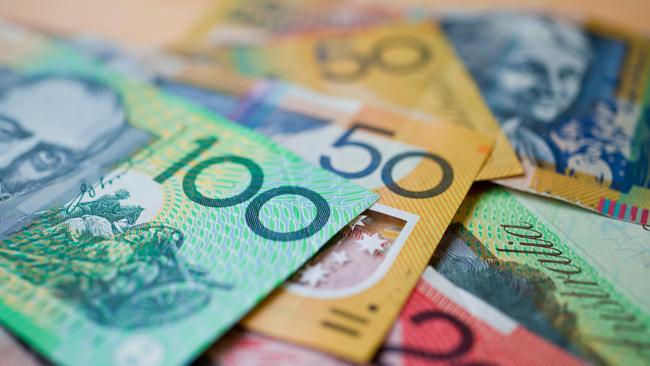The cash economy is on a roll
While yesterday’s GDP miss has raised concerns, it’s becoming clear that at least one part of the economy is booming.

Indeed it may be our fastest growing sector.
As I move around the country I’ve encountered lots of anecdotal evidence to back up this view but there is also some clear statistical material.
On the anecdotal side, at a Christmas function this week I was yarning with a person who works on the front counter in a large suburban bank. She explained to me that there was a continuing and strong demand for $100 notes but then she noted: “But we rarely see them come back”.
The implication was that they are being stored somewhere rather than being placed in a bank. When you talk with friends and acquaintances, they’re usually quite open about the fact that they pay cash for their building maintenance and repairs, gardening, home help and sometimes child care.
Obviously, some of this cash goes into $100 bills but a great deal of it is recycled in the community in expenditure on restaurant/cafe/takeaway food.
In addition, Asian visitors to Australia seem to have a lot of cash and they inject that cash into the retail sector.
In smaller family-owned stores some of this is paid in kickbacks to staff to avoid high penalty rates. We also know that there is a huge illegal drug industry totally operating on cash.
All this is anecdotal and I can’t prove anything.
We do know that in the private sector most salaries are not rising, though there are exceptions such as the commercial building industry.
In the public sector, salaries are rising much faster than most areas of the private sector but those limited area salary increases do not explain the sharp rise we see in family incomes as measured by Morgan Research.
This graph from Morgan research shows the trend dramatically
The Morgan people don’t have an accurate fix on exactly why family incomes are rising so strongly in the current circumstances but they believe the cash economy is a considerable contributor.
I don’t have a magical solution for curbing this growth in the cash economy. I know the tax commissioner is trying hard but unfortunately with limited affect.
In the area of illicit drugs, instead of flooding the streets with constables, a better plan might involve recruiting highly skilled people to trace the cash.
In the non-drug arena, the best solution I can think of is to make expenditure on household repairs, maintenance, cleaning etc up to 10 or 20 per cent tax deductible.
Households with medium to high income that do not claim such expenditures are very likely participating in the cash economy. A visit from the tax man will change their behaviour.
Once a payment is claimed there is a tax file number from the recipient which shows who got the money. That area of the cash economy will be greatly curbed.
I think that would substantially reduce the cash economy. But it’s a preliminary opinion and I have been warned that such a tax deduction would cause a major social revolt because richer people would be getting tax deductions they didn’t deserve.








The overall economy might be having a hard time, but evidence is mounting that the Australian cash economy is booming.